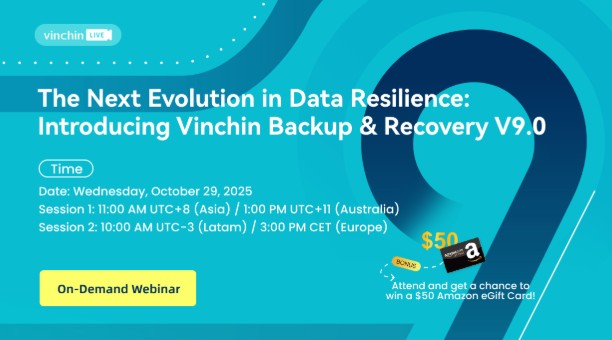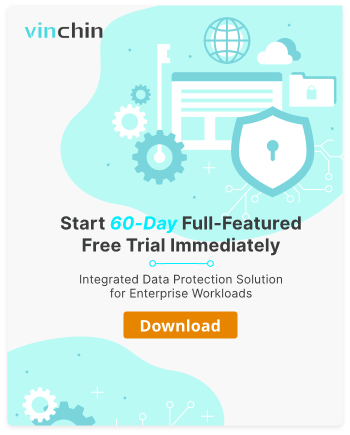-
Residential Data Characteristics
-
Residential Backup Challenges
-
Common Backup Methods in Residential Settings
-
Vinchin’s Data Protection Solution for Residential Users
-
Residential Data Backup FAQs
-
Conclusion
Today, our homes are filled with digital memories and important files. From family photos to tax documents, the amount of data we create and store keeps growing. But what happens if a device fails, gets lost, or is attacked by malware? A robust residential data backup solution is now essential for every household. In this article, we’ll explore the unique challenges of backing up home data and the best ways to keep your digital life safe.
Residential Data Characteristics
Residential data is different from business data in several ways. First, the scale and growth of digital information at home are remarkable. Families now store thousands of photos, hours of video, and countless documents on computers, phones, and tablets. Even smart home devices—like security cameras and thermostats—generate data that may need protection.
The types of devices in a home are diverse. You might have Windows PCs, MacBooks, Android phones, iPhones, tablets, and even network-attached storage (NAS) devices. Each device can hold unique and irreplaceable content.
Home data is often highly sensitive. Personal photos, financial records, and private messages require strong privacy protection. Many files, such as family videos or scanned documents, need to be kept for years or even decades. The formats are varied, too—ranging from JPEGs and PDFs to music, videos, and app data. All these factors make residential data backup both important and challenging.
Residential Backup Challenges
Finding the right residential data backup solution isn’t always easy. Home users face several major challenges:
Device diversity is a big hurdle. With so many types of devices and operating systems, it’s tough to find one solution that covers everything.
User awareness is often low. Many people don’t realize the risks of data loss until it’s too late.
Limited IT skills can make setup and maintenance difficult. Not everyone is comfortable configuring backup software or troubleshooting errors.
Data privacy is a growing concern. Backups must be protected from unauthorized access, especially when stored in the cloud.
Regulatory Compliance and other privacy laws may apply, especially if you store sensitive information or live in certain regions.
Cost constraints are real for families. Many want a solution that’s affordable and doesn’t require ongoing fees.
Reliability is critical. A backup is only useful if it works when you need it.
Ease-of-use is essential. If a backup system is too complex, it won’t get used—or worse, it may fail without anyone noticing.
Do any of these challenges sound familiar? You’re not alone.
Common Backup Methods in Residential Settings
Home users have several options for protecting their data. Let’s look at the most common methods:
The first is external hard drives. These are popular because they’re affordable and easy to use. You simply plug the drive into your computer and copy files over. Many drives come with backup software that can automate the process. However, external drives can fail, get lost, or be damaged in a disaster.
Another popular method is cloud storage services. These let you back up files over the internet to secure data centers. Cloud backups are great for off-site protection and easy access from anywhere. They often include features like versioning and encryption. But they may require a subscription, and upload speeds can be slow for large files.
Some tech-savvy users set up network-attached storage (NAS) devices. A NAS is a small server that sits on your home network and stores backups from multiple devices. It’s a powerful option for families with lots of data or multiple computers. However, NAS devices can be expensive and require more setup.
Manual backups to USB drives or even DVDs are still used by some. This method is simple but easy to forget, and it doesn’t protect against fire or theft.
Many experts recommend following the “3-2-1” rule: keep three copies of your data, on two different types of media, with one copy stored off-site. This approach helps protect against most risks.
Vinchin’s Data Protection Solution for Residential Users
Vinchin has already delivered data protection solutions to numerous enterprises in the residential technology industry worldwide—helping households safeguard their digital lives with confidence. Vinchin stands out by being compatible with over 19 virtualization platforms, including VMware®, Hyper-V®, Proxmox®, as well as physical servers like Windows®/Linux®, databases such as SQL Server®/MySQL®, plus both on-premises file storage systems (like NAS) or cloud environments—meeting all kinds of IT setups found at home today.
If you ever need migration flexibility as your technology changes over time—whether moving between virtual machines or shifting workloads across physical/cloud hosts—Vinchin offers some of the industry’s most flexible full-system migration capabilities so you never lose access to your important files during upgrades or transitions.
For critical workloads running on any machine type at home—including personal computers—Vinchin provides real-time backup and replication features that add extra recovery points while automated failover minimizes downtime (RPO/RTO). To ensure every backup works when needed most: Vinchin performs automatic integrity checks plus isolated recoverability validation so you know your memories will always restore correctly if disaster strikes.
You can also build resilient disaster recovery using automated Data Retention; archive/back up directly into cloud storage; set remote replicas; or establish DR centers—all ensuring fast recovery after unexpected events like hardware failure or cyberattacks. With its simple browser-based web console & wizard-driven workflows—even non-experts can quickly create jobs without hassle! Try Vinchin Backup & Recovery free for 60 days—with full documentation & responsive support engineers ready to help deploy effective protection throughout your environment!
Residential Data Backup FAQs
Q1: What’s the best way to protect family photos from accidental deletion?
A1: Use automated backups to both local and cloud storage so you always have a recent copy if something is lost.
Q2: Can I back up my smartphone and laptop to the same solution?
A2: Yes, many backup solutions support multiple device types allowing you to protect all your devices together.
Q3: How often should I schedule backups for my home computer?
A3: Daily or weekly automatic backups are recommended to ensure your latest files are always safe.
Conclusion
With our digital lives growing every day—a strong residential data backup solution matters more than ever before! Protecting memories & important files doesn’t have to be hard nor expensive: Vinchin offers an effective way forward so every household keeps its precious information safe—and recoverable—for peace-of-mind tomorrow!
Share on:











